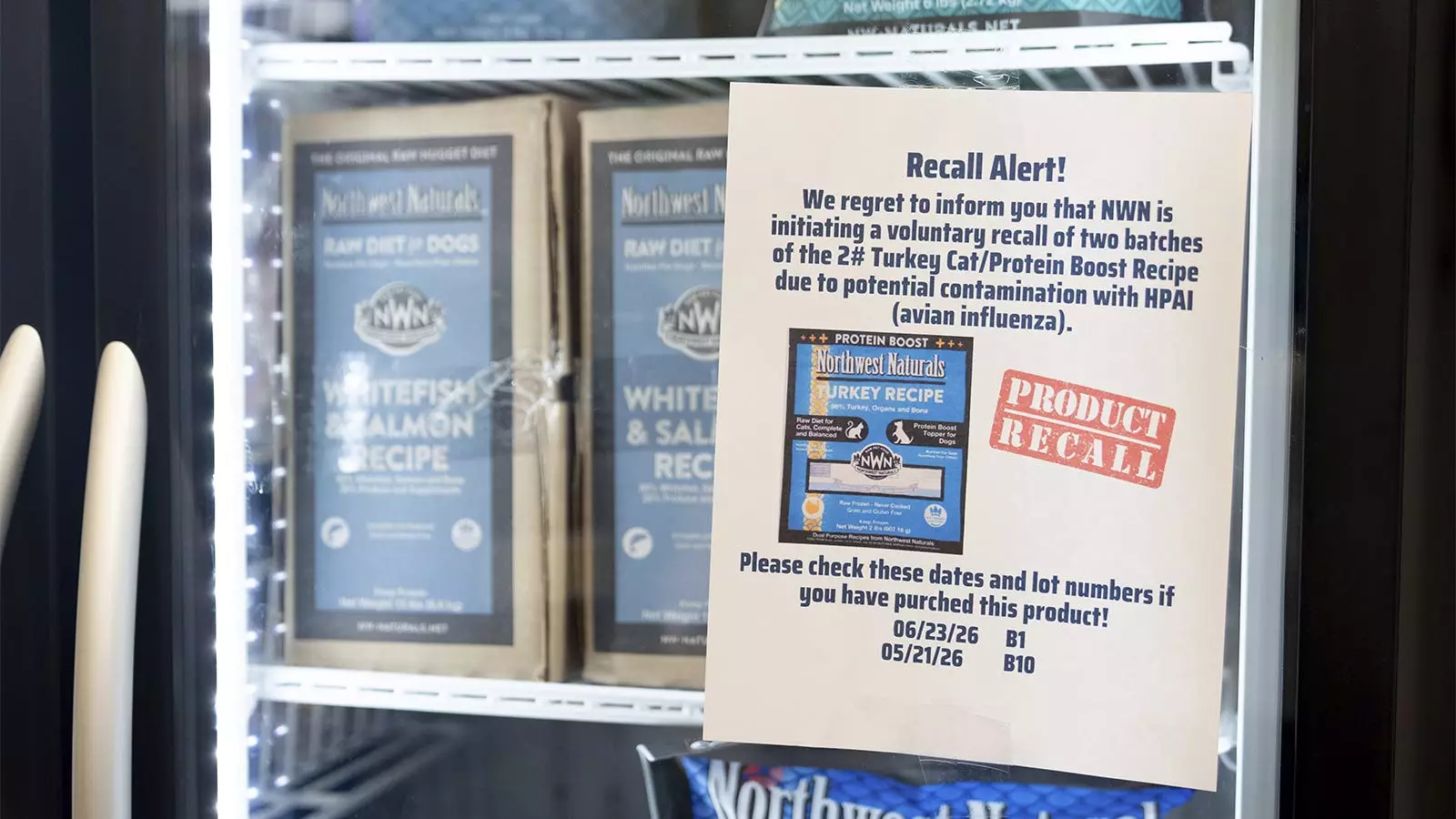The recent death of a house cat in Oregon has shed light on a vital public health issue: the potential dangers associated with bird flu and its impact on domestic pets. With an outbreak of avian influenza (H5N1) affecting various animal species, including birds and even mammals, pet owners are left with pressing concerns over how to keep their beloved animals safe.
Bird flu has been present in wild bird populations for a considerable duration, but its path of infection has now expanded to include domesticated animals as well. The virus gained notoriety in March when it was detected in dairy cattle for the first time in the U.S. While human cases remain sporadic and mild, they predominantly occur among individuals working in agriculture, particularly in poultry and dairy settings.
In a bid to contain outbreaks, health authorities often mandate the culling of infected birds, which raises the stakes for pet owners who may unwittingly expose their animals to the virus through contaminated products. One such case in Oregon involved a cat that consumed raw turkey from a recalled batch of pet food, resulting in the discovery that the virus matched the strain affecting the cat.
An increasingly popular trend among pet owners is the feeding of raw diets, believing that such an approach mimics a cat’s natural feeding behavior. However, experts warn that raw meat products can harbor various pathogens, including the bird flu virus. Dr. Michael Q. Bailey, the incoming president of the American Veterinary Medical Association, stresses the importance of cooking meat or pasteurizing milk to eliminate these risks.
Despite the apparent nutritional advantages that raw diets might claim, the dangers associated with them cannot be overstated. Pet owners must weigh the risks critically and consider opting for commercially processed foods that meet safety standards rather than feeding their pets raw meats.
While cases of bird flu transmission to pets remain rare, felines have shown a particular susceptibility to the H5N1 virus. An alarming number of infections have been reported since the outbreak among dairy cattle, affecting various cats, from domesticated house cats to wild big cats. The situation has prompted health officials, such as those in Los Angeles County, to investigate related feline fatalities linked to contaminated food sources.
Dogs appear somewhat less vulnerable to the infection compared to cats, but caution is still advised. Experts recommend that pets consume thoroughly cooked meals as a safeguard against potential threats from pathogens present in raw foods.
To protect cats from the risk posed by bird flu, owners should adhere to several precautionary measures. First and foremost, it is advisable to avoid unpasteurized dairy and raw meat. Keeping cats indoors or supervised during outdoor excursions will help prevent encounters with wildlife, which can be carriers of avian influenza.
Pet owners should also be mindful about handling sick or deceased birds, as these can pose risks of transmission. Washing hands thoroughly after contact with any poultry or animals is a simple yet effective measure to mitigate the risk of infection.
Awareness is critical; recognizing symptoms of bird flu in cats can be lifesaving. Indicators of illness may include a notable decrease in appetite, lethargy, fever, and respiratory distress. Pet owners should be alert for changes in behavior—if a previously active cat becomes withdrawn or appears unwell, it’s crucial to seek veterinary care promptly. Other symptoms may manifest as eye discharge, difficulty breathing, or even seizures in severe cases.
Recent Pet Food Recalls
In light of the current health concerns, pet food recalls have garnered attention. Northwest Naturals, based in Portland, Oregon, has voluntarily recalled specific 2-pound packages of its Feline Turkey Recipe raw frozen pet food after instances of the virus were detected. This particular product was distributed across various states and Canada, underscoring the importance of vigilance regarding pet food safety.
Consumers should discard any affected products and seek refunds from the retailers. Staying informed about recalls can be crucial in protecting pets from potential health hazards linked to contaminated food.
The risks posed by bird flu highlight the necessity for pet owners to take proactive measures to safeguard their pets. By understanding the threat, implementing preventive strategies, and maintaining a watchful eye on their pets’ health, owners can contribute to the overall well-being of their furry companions.

Leave a Reply